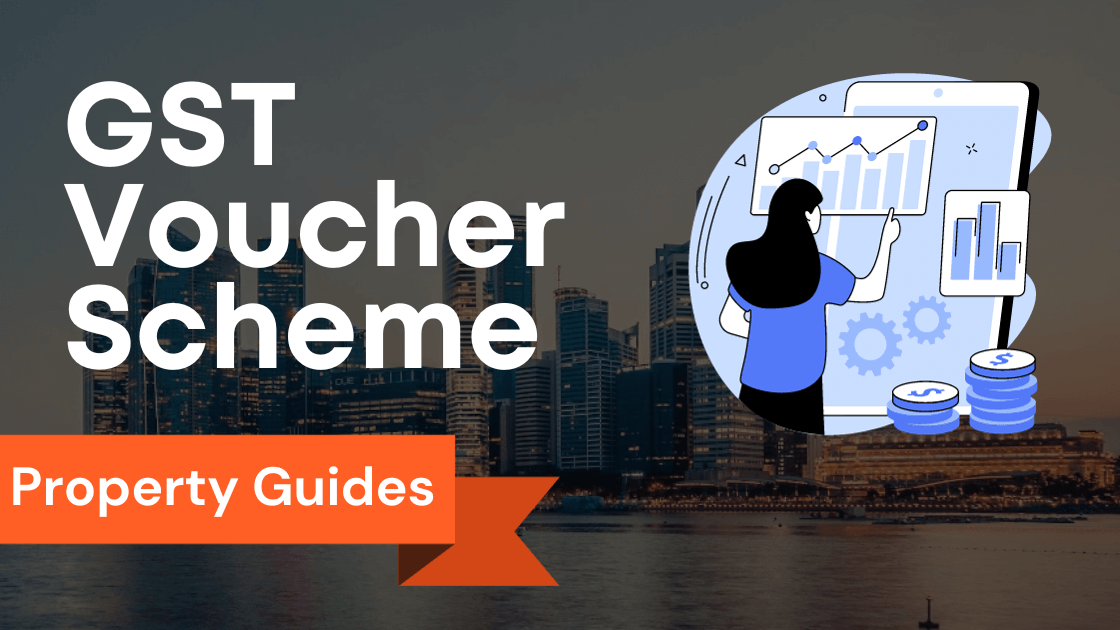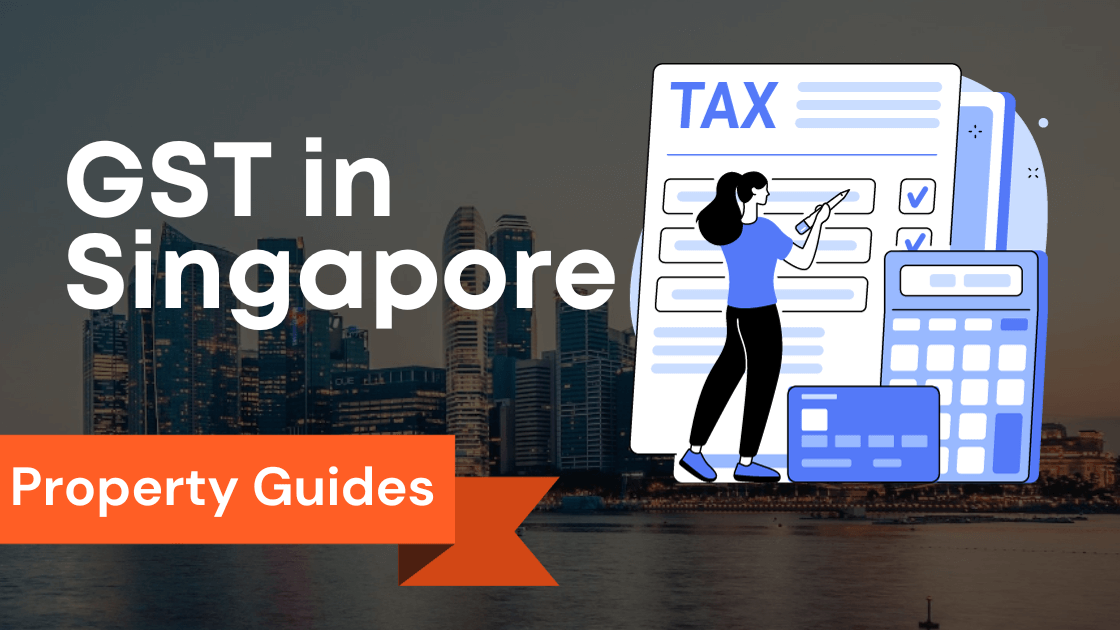GST on Residential Leases in Singapore
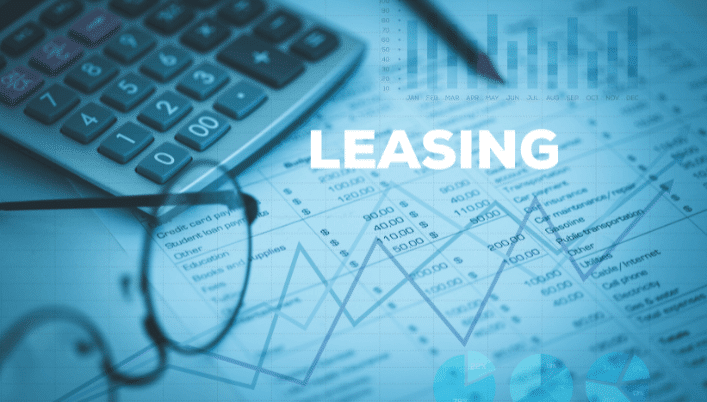
Is GST payable on the lease of residential properties?
GST payable on residential lease in Singapore depends on various factors.
If the value of the property exceeds SGD 1 million, GST is chargeable on the lease.
For bare residential units, GST is not applicable.
However, if the property is furnished, GST is chargeable on the monthly rental value, including the rental deposit.
The GST on the full rental amount is payable on the remaining sum after excluding GST.
For properties that are utilized for residential or condominium development, GST is also chargeable on the sale and lease of the properties, regardless of whether they are furnished or not.
It is important to note that residential properties, excluding bare residential units, are subject to GST.
When it comes to the rental of furniture and fittings, the GST payable is determined based on the monthly rental value of the furniture and the value of the fittings in both residential and bare residential units.
Separate GST returns must be filed for the purchase of property and the rental of the bare residential or unfurnished residential property.
For land that is approved for residential or condominium development, GST is applicable on both the sale and lease of the property.
However, GST is not chargeable if the building is considered a residential building and if the land is approved as residential land by the government.
In summary, GST payable on residential leases in Singapore varies depending on the nature of the property, whether it is furnished or unfurnished, and whether it is approved for residential development.
It is crucial for property owners and tenants to understand and comply with the GST requirements set forth by the government.
In Singapore, the lease of residential properties is generally exempt from Goods and Services Tax (GST).
This means that landlords do not have to charge GST on the rent payable by tenants.
However, there are certain scenarios where GST may still be applicable.
If the lease of residential properties includes services such as housekeeping or maintenance provided by the landlord, then GST may be payable on these services.
Additionally, if the lease is for a property that is not solely for residential purposes, such as a property used for both residential and business purposes, then GST may also be chargeable.
It’s important to note that there is a threshold limit for GST exemption on the lease of residential dwellings.
If the rent payable for the residential property exceeds this threshold, the landlord will need to register for GST and charge GST on the rent.
When is GST payable on the lease of residential properties?
GST is payable on the lease of residential properties when the rent exceeds the threshold limit.
The threshold limit for GST exemption on residential leases is currently set at $150,000 per year.
If the annual rent payable exceeds this amount, the landlord will need to register for GST and charge GST on the rent.
However, it’s worth noting that certain residential units, such as Halls of Residences, are specifically excluded from the GST registration requirement, regardless of the rent amount.
How to calculate GST on residential leases
To calculate GST on residential leases, GST-registered landlords must charge GST at the prevailing GST rate on the taxable supply of services.
The GST-registered tenant is then entitled to claim input tax credit on the GST paid.
It’s important to remember that the supply of services for residential leases may fall under the reverse charge mechanism.
This means that the GST-registered tenant will be responsible for accounting for the GST on the supply of services, such as providing furniture or sanitary wares.
For residential leases that include the supply of services, both the landlord and the tenant must ensure that they are familiar with the GST rules and obligations to comply with the tax regulations.
https://www.youtube.com/watch?v=J0ybW4zYWhc
In conclusion, while most residential leases in Singapore are exempt from GST, there are scenarios where GST may still be payable.
It’s important for landlords and tenants to understand the regulations and their obligations regarding GST on residential leases.
Key Takeaways
- GST Exemption: Residential property leases in Singapore are generally exempt from GST. Landlords do not need to charge GST on rent unless certain conditions apply.
- Applicability of GST: GST may be applicable if services like housekeeping or maintenance are included in the lease. Also, if the property serves both residential and business purposes, GST might be chargeable.
- Threshold Limit: There is a threshold limit for GST exemption on residential leases, set at $150,000 per year. If rent exceeds this amount, landlords must register for GST and charge it.
- Calculation of GST: GST-registered landlords should charge GST at the prevailing rate on taxable services. Tenants can claim input tax credit on the GST paid.
- Reverse Charge: The reverse charge mechanism may apply to the supply of services in residential leases, where the tenant is responsible for accounting for GST.
- Movable Furniture: GST may apply to the rental of movable furniture and fittings under specific conditions, including a monthly basis and non-residential use.
- Claiming GST Refunds: Registered persons can claim GST refunds on such rentals, but exemptions and tenant status should be considered.
- GST Registration: Landlords offering additional services like internet or renovation may need to register for GST if their annual turnover exceeds S$1 million.
- Recent Changes: Recent changes have made GST applicable to executive condominiums and let-out properties since January 2020. Landlords must charge and collect GST.
- Common Mistakes: Common GST mistakes include failing to charge GST on rental payments and not registering for GST when required.
- Assistance: The Inland Revenue Authority of Singapore (IRAS) can provide guidance on GST-related matters for residential leases. Seek specialized advisory services for detailed help.
GST on Residential Leases with Movable Furniture and Fittings
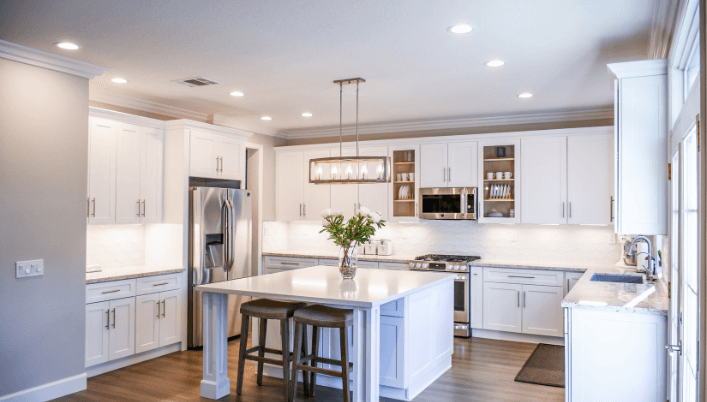
If you are a landlord or tenant of a residential property in Singapore, it’s important to understand the implications of Goods and Services Tax (GST) on the rental of movable furniture and fittings.
Here are the key points to note:
When is GST payable on the rental of movable furniture and fittings?
GST is payable on the rental of movable furniture and fittings when all of the following conditions are met:
- The rental is charged on a monthly basis.
- The rental is for movable furniture and fittings provided by the landlord.
- The rental is in a personal capacity and not in the course of business.
- The imported low-value goods scheme does not apply.
- The premises are not solely used for residential purposes and include a ventilation fan or floors of shophouses approved for residential use.
- The rental is not for personal consumption.
How to calculate GST on the rental of movable furniture and fittings
To calculate GST on the rental of movable furniture and fittings, the following steps can be followed:
- Determine if the landlord is a registered person for GST purposes.
- If the landlord is a registered person, GST is charged on the rental amount.
- If the landlord is not a registered person, GST is not applicable.
- Additional costs, such as maintenance fees and utilities, may be subject to GST if they are considered taxable supplies.
Claiming GST refunds on the rental of movable furniture and fittings
Registered persons who charge GST on the rental of movable furniture and fittings can claim GST refunds on these supplies.
However, if the rental income is exempt from GST, Vacant Residential Land, Wall-mounted Air, or the tenant is a non-GST registered person, claiming GST refunds may not be possible.
https://www.youtube.com/watch?v=JqI6DFkvTvc
It is crucial for landlords and tenants to understand the GST implications on residential leases with movable furniture and fittings to ensure compliance with Singapore’s tax regulations.
Consulting with a tax professional or engaging the services of an accountant can provide further guidance on specific cases and ensure accurate adherence to GST requirements.
GST Registration for Residential Property Landlords

When is GST registration required for residential property landlords?
If you are a residential property landlord in Singapore and provide additional services such as internet service provision or renovation services, you may need to register for Goods and Services Tax (GST).
The Inland Revenue Authority of Singapore (IRAS) states that if your total annual turnover from taxable supplies exceeds S$1 million, you are required to register for GST.
This includes income from both rental and non-rental services, such as the provision of services like internet services and renovation services.
What are the benefits of GST registration for residential property landlords?
There are several benefits to registering for GST as a residential property landlord.
Firstly, by registering for GST, you can claim back the GST charged on expenses related to the property, such as renovation services.
This helps to offset your costs and can result in significant savings.
Additionally, GST registration allows you to charge GST on your rental income, which can help to cover the costs of other GST charges you may incur, such as the Housing and Development Board’s Service and Conservancy Charge.
How to register for GST in Singapore?
To register for GST in Singapore, you can do so online through the IRAS website.
The registration process is relatively straightforward and can be completed within a few days.
It is important to note that GST registration is done on a reverse charge basis for residential property landlords.
This means that you will only need to charge GST on the rental income if you provide additional services or include items like loose furniture or low-cost furniture in the lease agreement.
Overall, GST registration for residential property landlords can provide financial benefits and help ensure compliance with Singapore’s tax regulations.
It is advisable to consult with a tax professional or the IRAS for specific guidance based on your individual circumstances.
Common GST Pitfalls and Mistakes in Residential Lease
Who is eligible to claim GST refunds on residential leases?
In Singapore, businesses engaged in residential leases may be eligible to claim Goods and Services Tax (GST) refunds.
According to the GST Act, residential leases are considered taxable supplies and should be included in the sales reported in your GST returns.
However, there are certain conditions to be met in order to qualify for GST refunds on residential leases:
- The land must be classified as “residential” land by the Singapore Land Authority.
- The lease must be for a term of at least five years.
- The land must not be vacant land or purchased for the purpose of development.
- The total value of the residential leases must exceed the GST relief and import relief threshold.
The rate of GST on residential leases is currently set at 7%, but it is important to note that there is an Effective Rate system in place to calculate the actual GST payable on residential leases.
What types of GST are refundable on residential leases?
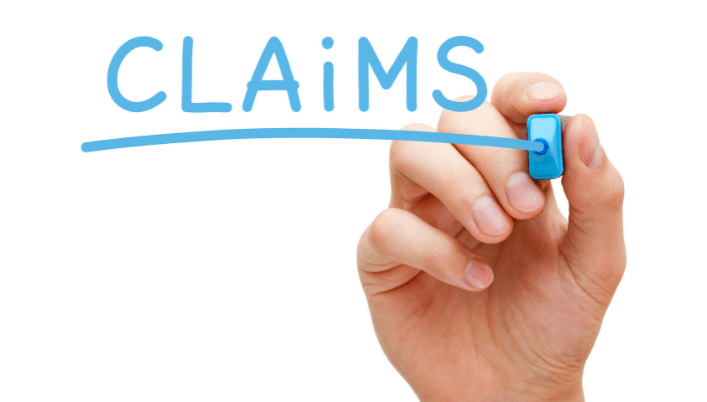
When it comes to claiming GST refunds on residential leases, only the GST on non-residential components is refundable.
This includes the financial component and any GST charged by services contractors.
However, GST on services tax and services provided to sellers, as well as conveyance expenses, are not eligible for refunds.
How to claim GST refunds on residential leases?
To claim GST refunds on residential leases, businesses should include the GST charged on non-residential components in their GST returns.
It is important to maintain accurate documentation and records to support these claims.
Businesses should also ensure that their lease agreements clearly state the breakdown of residential and non-residential components, as well as the GST charged.
In conclusion, understanding the eligibility criteria, types of GST refundable, and the process for claiming GST refunds on residential leases is essential to avoid common pitfalls and mistakes related to GST compliance in Singapore.
GST Rules and Regulations for Residential Leases in Singapore

Recent changes to GST rules and regulations for residential leases
In recent years, there have been changes to the Goods and Services Tax (GST) rules and regulations for residential leases in Singapore.
These changes primarily affect executive condominiums and let-out properties.
Previously, GST was not applicable to residential leases.
However, starting from 1 January 2020, the government implemented GST on residential leases for these types of properties.
Under these new regulations, landlords are required to charge and collect GST on the rent they receive from tenants.
This means that tenants will now have to bear the additional cost of GST when renting residential properties.
Additionally, landlords are now able to claim input tax on expenses related to their rental properties, such as agent fees and maintenance costs.
To provide some relief to landlords and tenants, the government has introduced a Property Tax Rebate for residential properties with an annual value of up to S$21,000.
This rebate helps to offset some of the additional costs incurred due to the implementation of GST on residential leases.
Common GST mistakes to avoid when leasing a residential property
When leasing a residential property, it is important to be aware of common GST mistakes that landlords and tenants should avoid.
One common mistake is failing to charge GST on rental payments, which can result in penalties and fines.
Landlords should also ensure that they are registered for GST if their annual rental income exceeds the threshold of S$1 million.
Tenants should be aware that they may need to pay GST on the rental amount, in addition to the monthly rent.
It is also important to note that GST is not applicable to HDB’s Service and Conservancy Charge.
Where to get help with GST matters related to residential leases?
If you require assistance with GST matters related to residential leases, you can seek help from the Inland Revenue Authority of Singapore (IRAS).
They can provide information on the reverse charge applicability, input tax allowable, and input tax recovery rules.
Additionally, there are advisory services available that specialize in GST matters and can provide guidance on complying with the regulations.
By understanding the recent changes to GST rules and regulations, avoiding common mistakes, and seeking assistance when needed, landlords and tenants can navigate the GST requirements for residential leases in Singapore more effectively.
Conclusion
In conclusion, understanding the GST payable on residential leases in Singapore is essential for both landlords and tenants.
The amount of GST payable depends on various factors such as whether the property is residential or non-residential, the rental value, and the inclusion of furniture and fittings.
For residential properties, GST is generally not applicable, except for some specific cases such as leasing the property for commercial purposes or if the property is leased by a government or public authority.
However, landlords should keep in mind that the GST on the value of the full rental amount, including the rental of furniture and fittings, may be chargeable.
On the other hand, for non-residential properties, GST is typically chargeable.
Landlords should compute the rental value of the bare unit and the value of the furniture and fittings separately to determine the corresponding GST chargeable.
It is important for both landlords and tenants to fulfill their GST obligations.
GST-registered persons/entities should include the GST component in their sales and rental returns, while non-GST registered individuals or corporate entities should account for the GST in their monthly expenses.
Overall, staying informed about the GST regulations and requirements is crucial to ensure compliance and make informed decisions in the lease of properties in Singapore.
Seeking professional advice from GST-registered agents or tax authorities can provide detailed clarifications and help navigate through the complexity of GST treatment on residential leases.
With the proper understanding of the GST payable on residential leases in Singapore, both landlords and tenants can benefit from a fair and transparent playing field in the property market.
Frequently Asked Questions
What is GST payable on residential lease?
GST is not payable on the lease of residential properties.
Is GST charged on non-residential properties?
Yes, GST is charged on the lease of non-residential properties.
Are both the sale and lease of residential properties subject to GST?
No, only the sale and lease of non-residential properties are subject to GST.
Can I claim GST incurred on the purchase of a residential property?
No, you cannot claim GST incurred on the purchase of a residential property.
Can I claim GST incurred on the purchase of a non-residential property?
What happens if I sell or lease a residential property?
No GST is chargeable on the sale or lease of residential properties.
Can I claim GST incurred on the sale or lease of a residential property?
No, you cannot claim GST incurred on the sale or lease of a residential property.
What is the difference between residential and non-residential properties?
Residential properties are used for dwelling purposes, while non-residential properties are used for commercial or industrial purposes.
Can property owners claim GST incurred on the purchase of fixtures such as built-in cabinets?
Yes, property owners can claim GST incurred on the purchase of fixtures such as built-in cabinets if they are GST registered.
Do property buyers need to account for GST on the purchase of land for residential use?
No, property buyers do not need to account for GST on the purchase of land for residential use.











